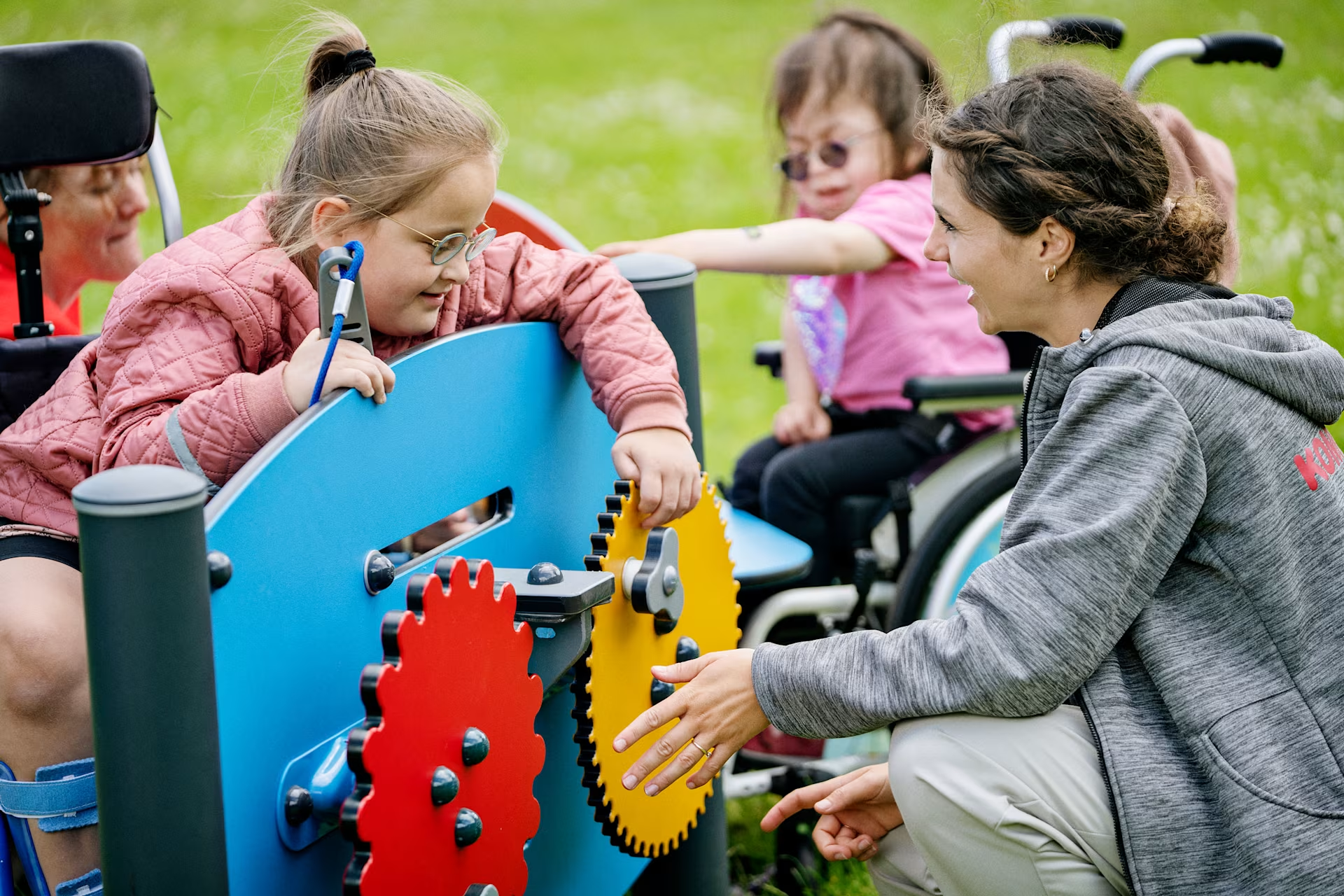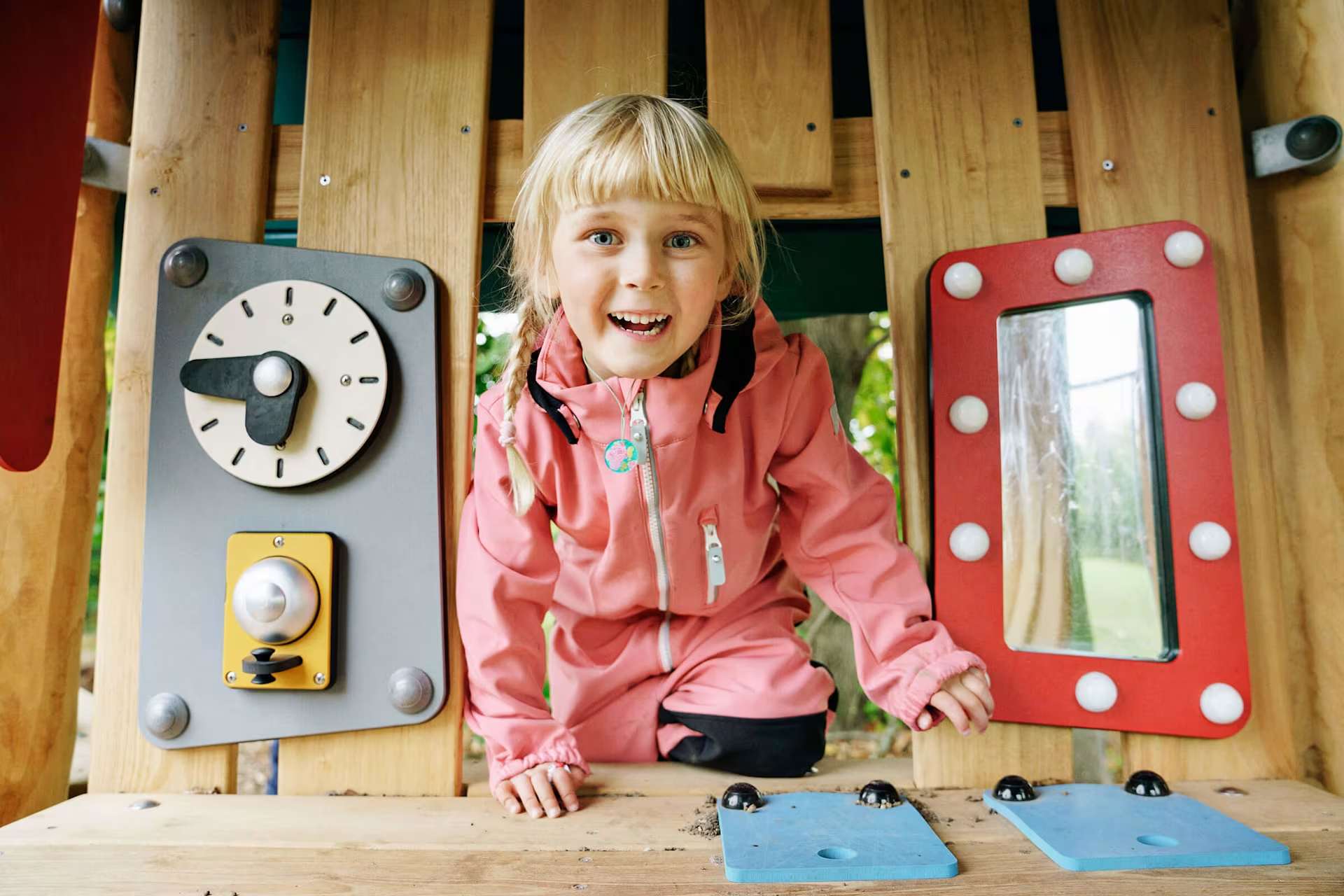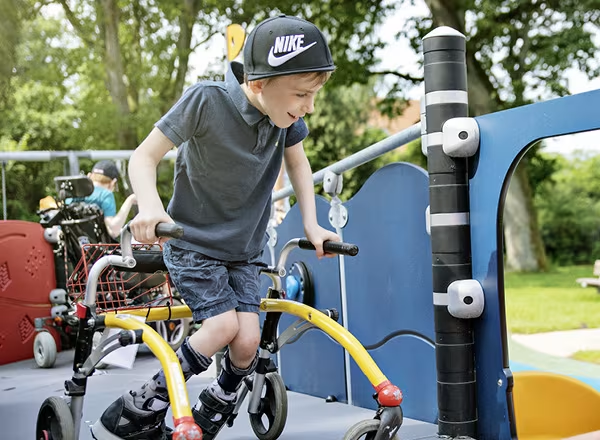Play Design

Embracing functionality, thrills and aesthetics
Great playground design inspires children of all ages to play, and play is key in developing young bodies and minds. The KOMPAN Play Institute is dedicated to creating amazing play opportunities that are functionally stimulating and visually attractive.
Great play design must embrace the aesthetics that appeal to the users and make them want to visit the playground again and again. More importantly, great play design must contribute to the children’s overall development. Therefore, the Institute is the driving force behind testing every play aspect of a KOMPAN playground.
Before manufacturing begins, all products are taken through four important steps: pre-production research, in-house workshops, in-situ testing, and product development. This ensures that KOMPAN continues to deliver the unique and user-centric play equipment that is at the heart of GREAT playgrounds.
Exploring the benefits of challenging play
This article explores the importance of thrill in children’s play. Playgrounds are places where children learn how to navigate the world securely. This is an important life skill that children only learn by doing.
Many parents and grandparents find playgrounds too risky. However, existing research shows that good playgrounds are important for developing children’s physical literacy and that physically challenging play actions teach children to handle risk.
Expand your understanding of the benefits of challenging playgrounds by reading this article.
Video: User testing by KOMPAN Play Institute

Play value: The influence of playground equipment
Key areas of childhood development, such as social, cognitive and language development, are not the usual center of attention in playground research. As a result, the KOMPAN Play Institute set out to investigate to which extent play structures with a wide variety of activity panels influence these important areas of childhood development.
Research from the KOMPAN Play Institute shows that playground equipment positively impacts the development of reception age children. Play panels provide extra play value and can be used to advance the development of children’s social-emotional and cognitive development.
Read the findings of the KOMPAN Play Institute to know more about what kind of playground equipment educators and park planners should invest in for their particular user groups - and why.
Innovative play: The key to more play
Playgrounds have been identified as the place within parks where children use the majority of their energy. The KOMPAN Play Institute set out to examine the retention of children and their parents on a newly refurbished playground at Flag Pole Hill in Dallas, Texas. The research included interviews with 177 adults and 50 children.
“The outdoor playground is great for my child’s health and important because of the ability to get outside and get fresh air!”, one parent stated. The research done by the KOMPAN Play Institute showed that 98% of parents found playgrounds to be important. The main reasons were the positive influence on their children’s health and the fresh air. The new landmark playground at Flag Pole Hill WOWed both children and parents and increased its use by 77%.
73% of the parents stated that their main reason for visiting this playground was the uniqueness of the play equipment. For a playground to be attractive it is important to have distinctive play opportunities for different age groups. A wide variety of play equipment ensures that the play area is fun and attractive for all ages and abilities.
Unique play designs: Increase play duration
Some playgrounds attract a lot more attention than others. To gain a deeper understanding of what exactly makes a playground enticing from a user perspective, the KOMPAN Play institute conducted research at a refurbished playground at Frimley Lodge Park, UK.
The case study included interviews with 262 adults and 95 children.
The study showed that more than half of the playground’s regular visitors had increased their visits to the park after the refurbishment.
Click the button below to learn more about this research and read our five recommendations for designing attractive playgrounds that keep children playing for more than 60 minutes on average.





